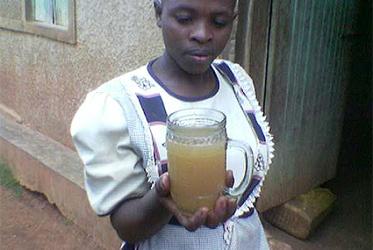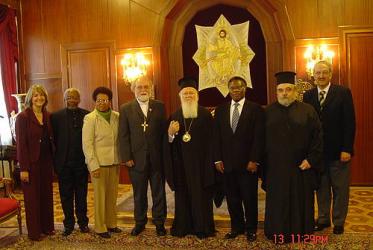This essay engages in socio-ethical analyses of the interconnectedness and relatedness of poverty, wealth, ecology, economy and injustices in Africa, particularly South Africa. Poverty and wealth cannot be understood in isolation from the socio-political, ecological, economic, historical and geo-spatial contexts in which they exist and are encountered. They require urgent attention in the articulation of the Christian faith and praxis in our contemporary society as it poses a lot of challenges for many, particularly women. This implies that theological and ethical reflections must be located in the actual lives of African communities and the earth, in order to understand how they deny or enhance the lives of humanity and that of the earth.
27 June 2007
WCC Programmes









